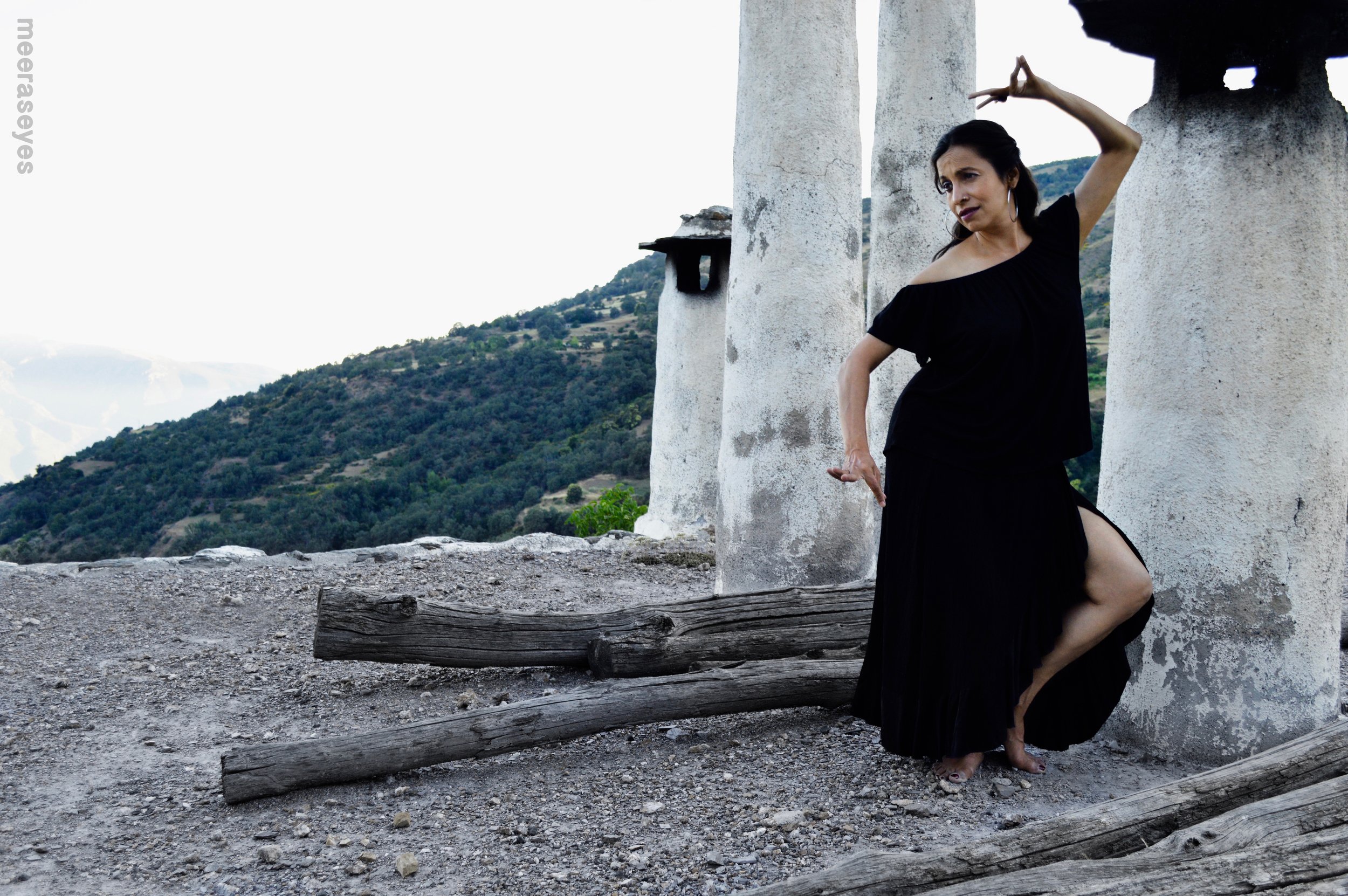
SUDDENLY, SPAIN…
The Arabian Sea in Bombay
the journey from India to Spain
The Good Manners of Colonized Subjects begins in India and ends in Spain.
- Shebana Coelho
It starts in India, and goes through the whole history of cultural and historical colonizations in India.
It goes into art and fear, and it ends in my story of liberation through the encounter with flamenco, and travels in faraway places.
And, what I feel is an important part of decolonization: choosing a new point of origin. One you choose yourself. And for me, that’s in what I call the cave of shadows. What I imagine to be those caves like Altamira in the North of Spain.
in the mountains of southern Spain - June 2021
photo: meera ghosh
The Space:
how did this all come about?
Here’s Carmen Fernández, lecturer in translating and interpreting at the University of Cádiz and Dr. Maurice O'Connor, University of Cadiz. We talk about this most curious happenstance, what it was like to share excerpts of the play informally in classes at the University, and the potential impact of the play in university spaces in the Iberian peninsula.
Maurice: (20:06)
(the excerps of the performance) worked amazingly...I just saw a lot of people go, Bam! They were getting what I was trying to tell them or what they were reading through narrative or through mediums. I actually think that in universities, we need a lot more of that. At least in Spain, in academia, teaching methods tend to be very rigid. So bringing something [like this] into the class - Wow, it's an eyeopener. It triggers...another sensorial…way of understanding.
And as much as this dream is unexpected, it has also been building all along.
I think of two podcasts: one is the very first one I recorded last year, which describes a lyrical conversation last year on a rooftop in Sevilla that I call “what to do when you hear someone say it was about civilizing, not colonizing,”
and another I recorded in Portugal a few weeks ago.
Both podcasts have to do with - well, what’s it like to talk about colonization in the place that funded the whole enterprise of it, what it’s like to hear people say it was all about civilizing, a la vez, at the same time, to have deep conversations as I did with perfect strangers in a tea shop in Lisbon about the legacy of coming from a lineage of colonizers, “you can’t just to a place and put your flag up and call it yours, no no,” he said. And I was so startled to hear him say it, I just nodded.
perfect audience
And the multicultural students in Maurice’s class - Ghana, Spain, Krygystan, Italy - young men and women in their twenties who are studying in Europe through the Erasmus program - I honestly feel they are one of the perfect audiences for the play. Because the conversations we had after the performances went deep into the heart of who you are when so many cultures have had their way with you, when you are asking yourself, to whom, to what do I belong, why am I here. For these students, identity and purpose are not just issues - they are tactile, concrete challenges about how to grow up in the world.
You know those moments when everything inside you is aligned, and you say, this, this is what matters?
That’s how I felt performing and interacting with them. Because I saw how the impact was growing in them and in me. That shared resonance - that!
Women in their middle years - between 40 and 80 - they are another strong audience for the play - because at that age, the question of who you are, why you are here - it comes up again with vividness and this play is about liberating yourself to live your true purpose in the world. Es andheer ke khamooshi mei, ek raag ki awaaz hai. In the dark, there is the sound of an old song. A woman falls into the dark and rises into light. That.
The play has always inspired deep reflection - it points at history and geography and events and dramatizes the story in a way that allows people space to reflect on their own story of what colonizes. At the end of the first performance, someone stood up and said, everyone is colonized by something or the other. Yes. also that.


